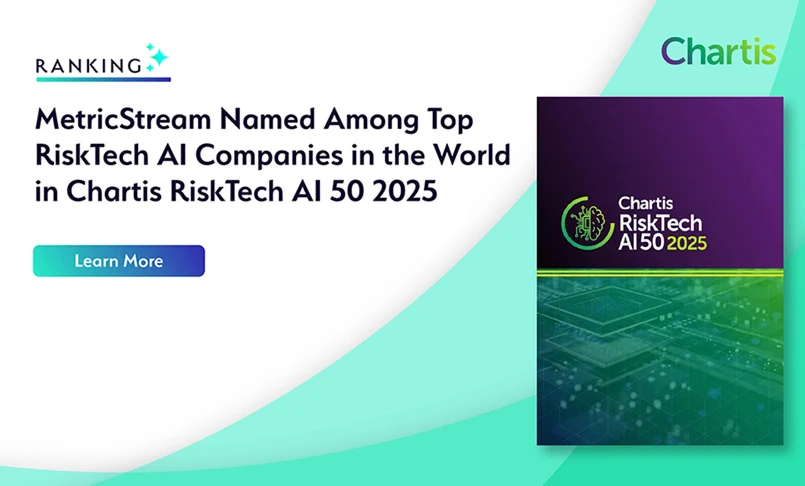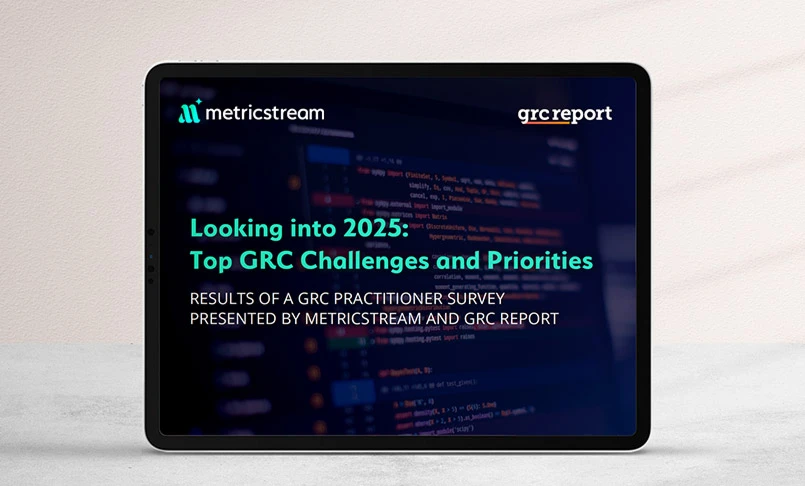Harnessing the Potential of Quantum Computing in GRC
- Technology
- 18 October 23

Introduction
In the rapidly evolving landscape of technology, quantum computing has emerged as a disruptive force with the potential to revolutionize a range of industries. Could this technology be applied to the field of Governance, Risk and Compliance?
What is Quantum Computing?
Quantum computing harnesses the principles of quantum mechanics to process information in ways that classical computers simply cannot achieve, performing complex calculations at speeds that were once thought impossible - more than 100 million times faster than any other computer we know today. This extraordinary computational power has led to quantum computing being explored across multiple sectors, from healthcare and finance to materials science and cryptography.
Industries Harnessing the Quantum Revolution
Quantum computing has found applications in a myriad of industries, ushering in new possibilities and transforming conventional practices.
In the field of healthcare, quantum computing is making strides in drug discovery, simulating complex molecular interactions with unparalleled accuracy. This acceleration of the drug discovery process holds the potential to revolutionize medical treatments and therapies, leading to more effective interventions for various diseases.
Quantum computing has also made significant inroads into the financial sector, particularly in optimizing investment portfolios and financial risk management. The ability to solve intricate optimization problems in real-time enables financial institutions to make well-informed decisions that maximize returns while minimizing risks. This is particularly relevant in today’s fast-paced and volatile markets, where timely and data-driven decisions are paramount.
In the realm of materials science, meanwhile, quantum computing is unlocking new frontiers by simulating the behavior of materials at the quantum level. This enables researchers to design and discover novel materials with specific properties, revolutionizing industries that rely on advanced materials, such as electronics, energy storage, and manufacturing.
Quantum computing’s impact extends to the field of cryptography, too, where it both presents challenges and offers solutions. Quantum computers have the potential to break conventional encryption methods, prompting the exploration of quantum-resistant encryption techniques to safeguard sensitive data in a post-quantum era.
Applying Quantum Computing to Governance, Risk and Compliance
The field of Governance, Risk, and Compliance (GRC) is characterized by its intricate web of regulations, data analysis, and strategic decision-making, making it a natural candidate for the application of quantum computing.
Quantum computing’s unique computational abilities have the potential to redefine how organizations approach GRC, enabling more accurate risk assessments, enhanced compliance management, and optimized decision-making.
Let’s consider the specific ways in which quantum computing may be harnessed within the realm of GRC:
Advanced risk modeling and analysis:
Risk assessment lies at the core of effective GRC practices. Quantum computing’s remarkable processing power can accelerate risk modeling and analysis by handling a multitude of variables simultaneously. Traditional risk assessments often involve intricate simulations that demand extensive time and resources. Quantum computing’s ability to process complex mathematical equations at speeds that were once unimaginable empowers organizations to conduct real-time risk assessments, thus enabling them to identify potential vulnerabilities promptly.
Real-time fraud detection:
Fraud detection is a perpetual challenge across various industries. Quantum computing’s ability to process vast datasets in parallel can significantly enhance fraud detection algorithms. By swiftly analyzing transaction patterns and identifying anomalies, quantum-powered systems can detect fraudulent activities in real-time, curbing financial losses and safeguarding organizational reputation.
Efficient compliance monitoring:
The GRC landscape involves complex regulatory frameworks that demand meticulous adherence. Quantum computing can streamline compliance monitoring by analyzing intricate regulations and standards. By mapping an organization’s processes against a vast array of compliance requirements, quantum-powered systems can ensure a higher degree of accuracy in compliance management and minimize the risk of violations.
Optimized decision-making:
Quantum computing’s prowess in solving complex optimization problems has profound implications for GRC decision-making. Whether it’s resource allocation, supply chain optimization, or portfolio management, quantum algorithms can identify the most efficient and compliant solutions. This enables organizations to make informed decisions that align with their strategic goals while mitigating potential risks.
Enhanced data security and privacy:
Quantum computing not only presents challenges to classical encryption methods but also offers the potential to create more robust encryption techniques. As data breaches become increasingly sophisticated, quantum-ready encryption methods can fortify data security and privacy in GRC operations. This is particularly relevant in industries where data confidentiality is paramount, such as healthcare and finance.
Scenario analysis and contingency planning:
It is the responsibility (and the burden!) of GRC professionals to grapple with preparing for various contingencies. Quantum computing’s ability to perform rapid simulations and scenario analyses can assist organizations in devising robust contingency plans. By evaluating multiple variables simultaneously, quantum-powered systems can rapidly provide insights into the potential outcomes of different risk scenarios, enabling proactive risk mitigation.
Potential Applications of Quantum Computing in GRC
The massive processing power achievable with quantum computing offers our industry many benefits, and opportunities. Here are just a few examples:
Supply chain resilience:
Imagine a global electronics manufacturer that relies on an intricate network of suppliers. Quantum computing can rapidly analyze diverse risk factors—such as geopolitical instability, supply chain disruptions, and regulatory changes—to help the organization develop agile supply chain strategies that mitigate potential disruptions and ensure business continuity.
Anti-Money Laundering (AML) compliance:
Financial institutions grappling with AML regulations could leverage quantum computing’s processing power to enhance transaction monitoring and anomaly detection. Quantum algorithms can analyze vast transaction datasets to uncover subtle patterns indicative of money laundering, thereby strengthening AML efforts and reducing financial risks.
Environmental risk management:
In industries susceptible to environmental risks, such as energy and mining, quantum computing can assist in analyzing complex geological and environmental data. By processing intricate models and simulations, quantum-powered systems can enable more accurate predictions of potential environmental impacts, aiding organizations in adhering to regulatory standards and minimizing ecological risks.
Regulatory compliance in healthcare:
The healthcare sector, laden with stringent compliance requirements, could leverage quantum computing to navigate the complexities of regulations like HIPAA (Health Insurance Portability and Accountability Act). Quantum algorithms can swiftly assess an organization’s processes, data handling practices, and privacy measures against regulatory standards, ensuring compliance and minimizing legal risks.
The potential applications of quantum computing in Governance, Risk, and Compliance offer the promise of transforming how organizations approach complex challenges, manage risks, and ensure ethical practices.
As quantum technology continues to evolve, organizations must seize the opportunity to integrate quantum computing into their GRC strategies, laying the foundation for a more resilient, compliant, and strategically adept future.
Although there may be hurdles and ethical considerations to overcome, the immense potential benefits of quantum computing cannot be ignored. By utilizing this emerging technology to enhance their GRC approach, organizations have the opportunity to strengthen their systems and controls, safeguard against unforeseen risks, and position themselves as pioneers in a quickly changing tech space. Ultimately, by embracing this quantum leap, organizations can unlock immense potential for growth, expansion, and long-term success.
The above blog was originally published as an article by the author on LinkedIn. Read the original version here.








